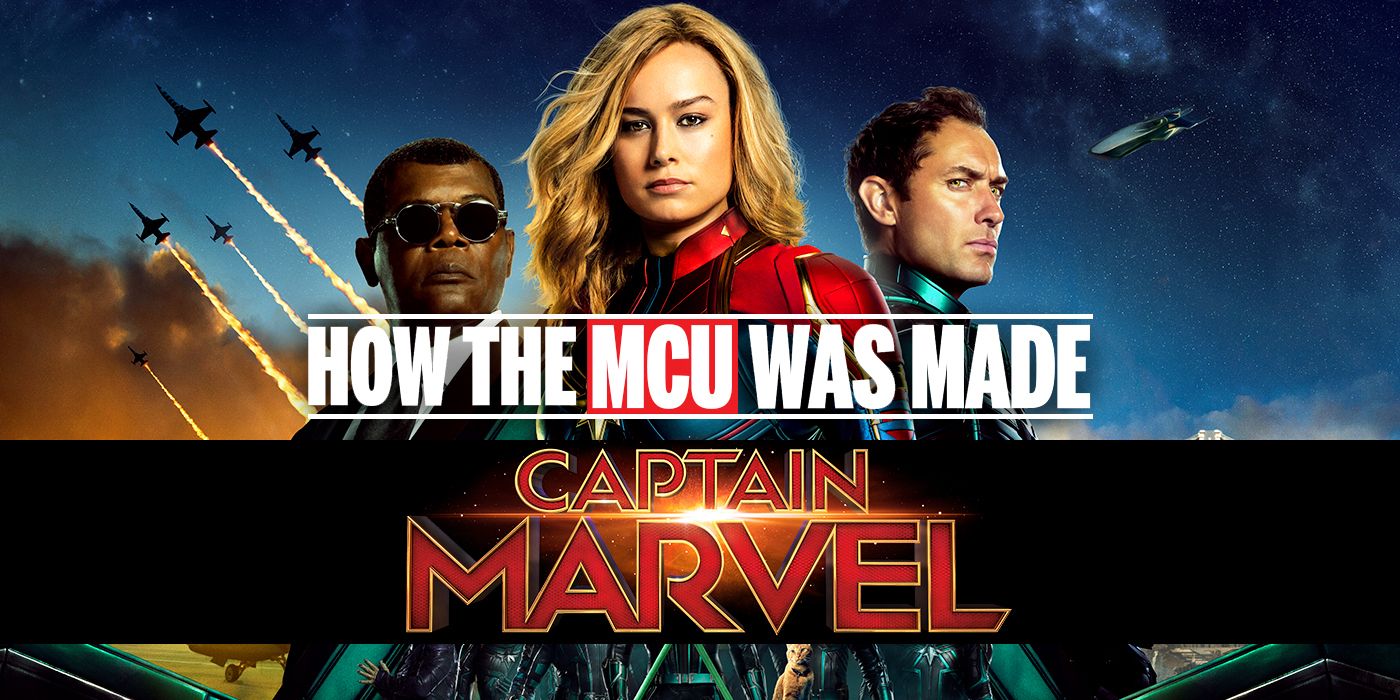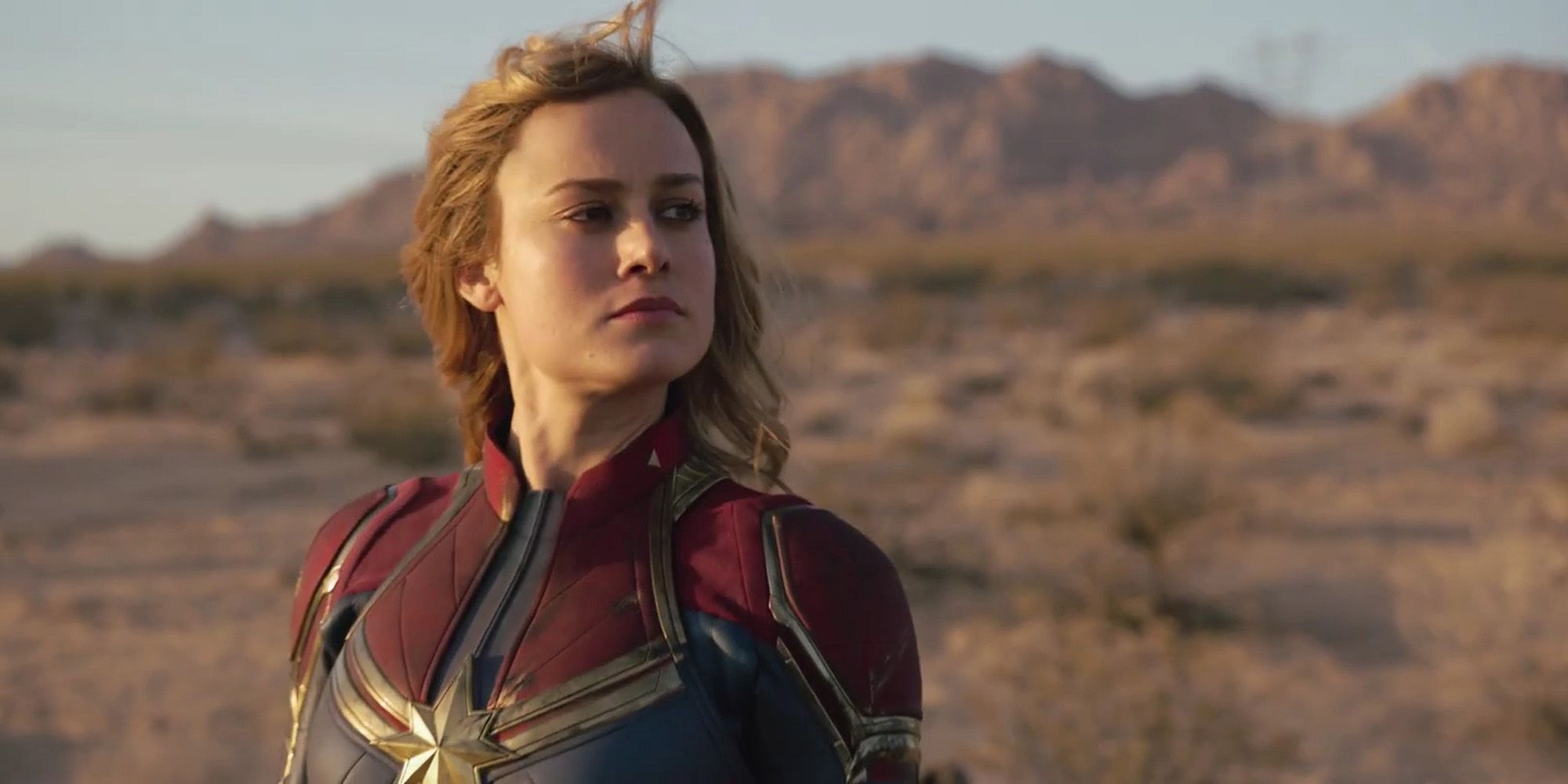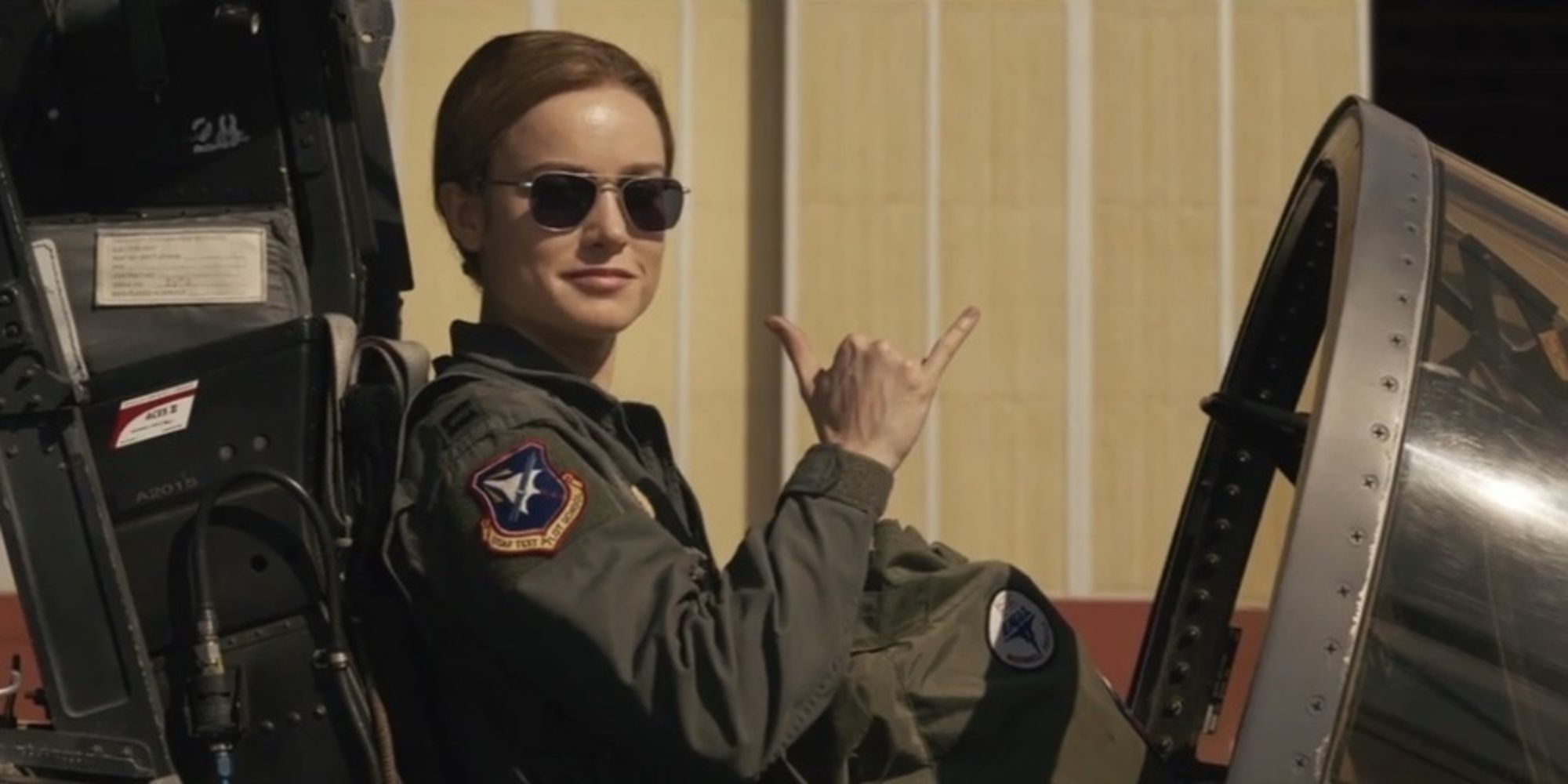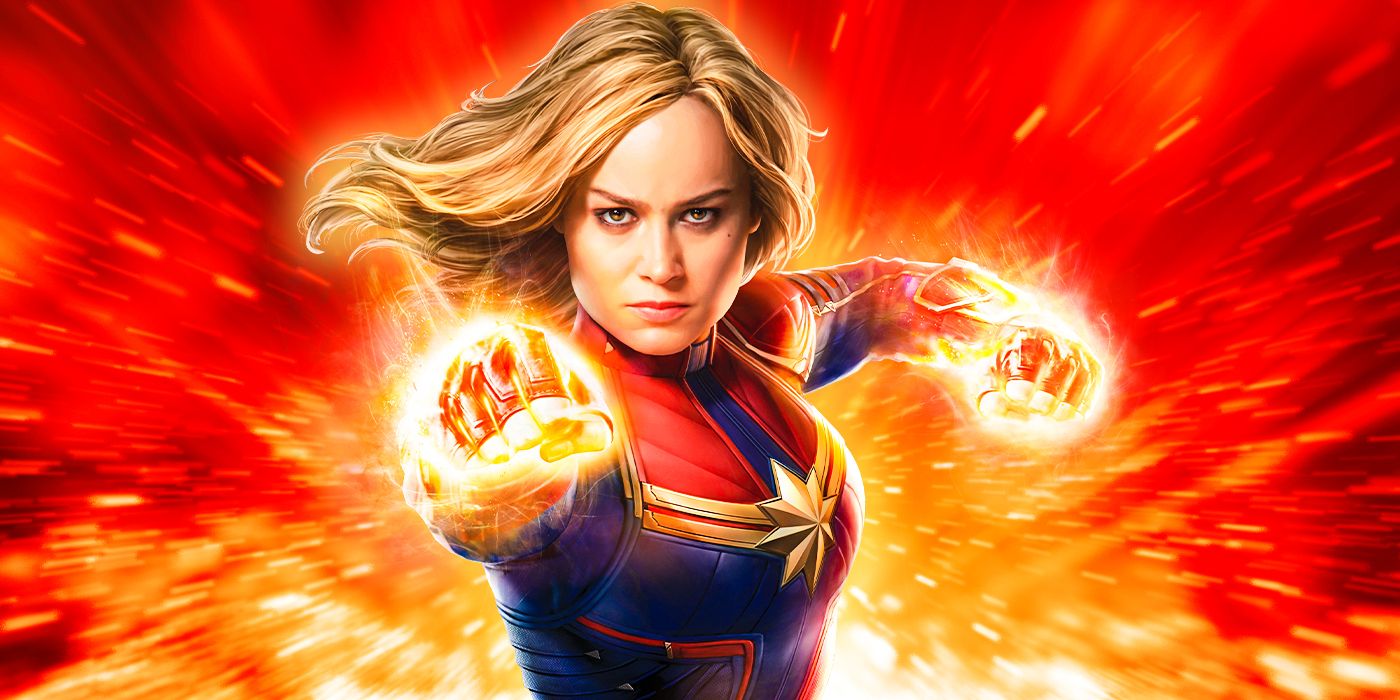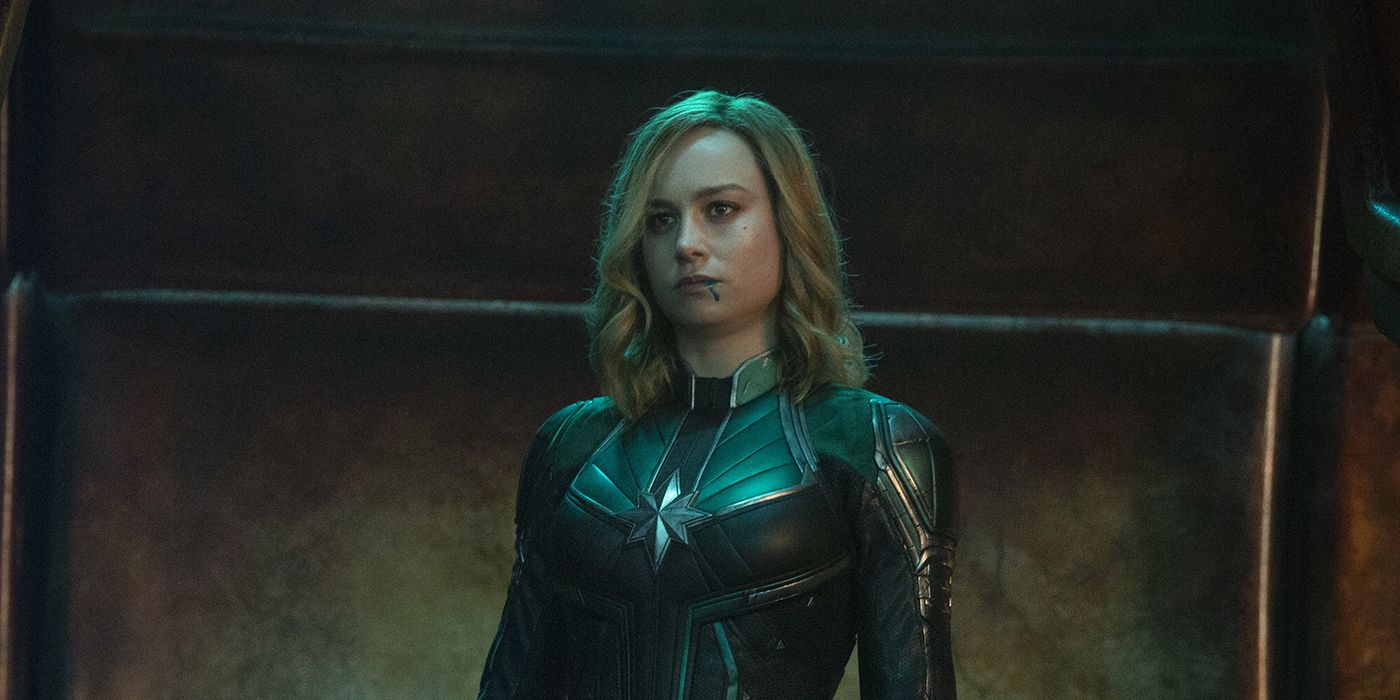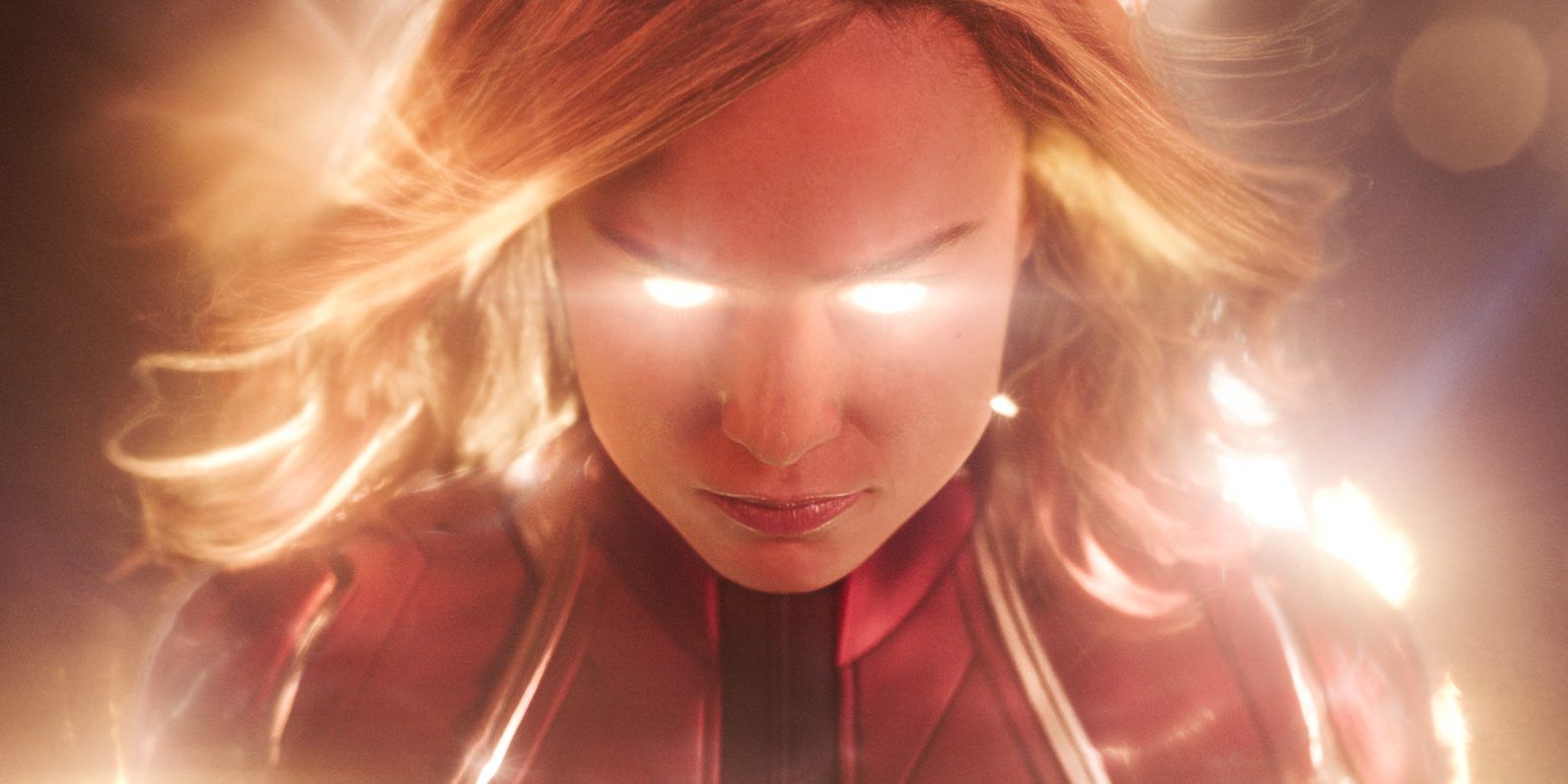The Big Picture
- Captain Marvel was the first female-led superhero movie in the MCU, arriving late but still achieving immense box office success and paving the way for the future of the franchise.
- Marvel Studios had been considering an adaptation of Captain Marvel for years, but wanted to introduce her via her own origin story rather than as a side character in the Avengers films.
- The film's development involved finding a female-led creative team, including Inside Out co-writer Meg LeFauve and Guardians of the Galaxy co-writer Nicole Perlman, as well as directors Anna Boden and Ryan Fleck. Brie Larson was cast as Captain Marvel and the film explored the cosmic nature of her powers.
"How the MCU Was Made” is a series of deep-dive articles that delve into the ins and outs of the development history, production, and release of all the Marvel Studios movies
As Marvel Studios morphed from a young, scrappy, and hungry upstart to one of the most popular—and consistent—franchise-makers around, audiences began clamoring for different kinds of stories in the MCU. The dark fantasy of Thor: The Dark World was different from the gritty reality of Captain America: The Winter Soldier which itself was different from the comedic heist tone of Ant-Man, but all of these films were led by white, male superheroes. The MCU certainly had its share of interesting female characters—Scarlett Johansson’s Black Widow chief among them—but a woman had yet to lead a superhero movie of her own.
Bringing Captain Marvel to the MCU
That changed with Captain Marvel, which admittedly arrived rather late in the game (it was the 21st Marvel Studios movie released), but soared to immense box office heights nonetheless and helped pave the way for the future of the MCU post-Avengers: Endgame. This is the story of how Marvel’s first female-led superhero movie was made. While it took over a decade for Marvel to bring Captain Marvel to the screen, the studio had actually been considering an adaptation of this particular comic book for quite some time. A script was written in the Marvel writers program (which existed in the early days of Marvel Studios), alongside other long-gestating projects like Blade and a Nick Fury movie that failed to come to fruition. Joss Whedon tried to introduce the character in Avengers: Age of Ultron, but Feige wouldn’t let him, saying that he wanted a chance to introduce audiences to Captain Marvel via the character's origin story instead of bringing her into the MCU fully formed.
Marvel began publicly teasing a Captain Marvel movie in 2013 and 2014, and in this instance, the public conversation was actually driven by what was happening over at Warner Bros.’ DC Films. Indeed, it’s hard to talk about Captain Marvel without acknowledging Wonder Woman. DC beat Marvel to the punch on a female-led superhero film, spinning off Gal Gadot’s pivotal character from Batman v Superman into her own 2015 movie. That film was a global phenomenon, earning high critical acclaim and impressive box office, and the fact that DC got there before Marvel prompted many to ask Marvel Studios why, this many films in, they still had yet to introduce a female-led superhero movie.
The time finally came in October 2014, when Marvel Studios president Kevin Feige announced that the studio’s first female-led movie Captain Marvel would be released in theaters on July 6, 2018 as part of their Phase Three slate. Feige explained that the delay in getting Captain Marvel to the screen was figuring out how she would fit into the MCU given the cosmic nature of her powers:
“This Captain Marvel’s name is Carol Danvers," said Feige. "This film has been in the works almost as long as Doctor Strange or Guardians of the Galaxy before it came out, and one of the key things was figuring out what we wanted to do with it. Her adventures are very earthbound, but her powers are based in the cosmic realm.”
This announcement came only two months after Guardians of the Galaxy hit theaters and was a global smash, which itself introduced the “Marvel Cosmic Universe” to audiences at large and whose success proved how deeply audiences would follow a super weird Marvel movie if done right. The announcement also came before Spider-Man entered the MCU, which explains why that release date was eventually pushed back to make room for Peter Parker—in February 2015, Marvel moved Captain Marvel to November 2018, and in October 2015 they pushed the film back to its final release date of March 8, 2019.
Finding the Team Behind 'Captain Marvel'
The film finally landed a creative team in April 2015, when Marvel announced that Inside Out co-writer Meg LeFauve and Guardians of the Galaxy co-writer Nicole Perlman were teaming up on scripting duties. Perlman had worked with Marvel before, albeit in a somewhat different manner—she originated the Guardians of the Galaxy project and screenplay, but James Gunn somewhat took over when he signed on to co-write and direct that film and the two were a tad contentious regarding who wrote what.
LeFauve and Perlman had separately pitched Marvel their takes on Captain Marvel, and Marvel Studios liked both so much that they decided to forge the two together as a writing team. Indeed, Marvel specifically looked towards female storytellers and filmmakers to assemble the Captain Marvel team, and approached Selma director Ava DuVernay about potentially tackling the female-led film or Black Panther. DuVernay sparked more to Black Panther, but eventually turned down the offer altogether.
Captain Marvel Finds Its Star and Directors
Development continued, but as Marvel Studios also began plotting out Avengers: Infinity War and Avengers: Endgame, they needed to go ahead and cast Carol Danvers. In June 2016, Brie Larson’s name surfaced as the frontrunner for the role, and sure enough at San Diego Comic-Con the following month Larson took the stage to confirm her casting as the MCU superhero. The actress was fresh off a Best Actress Oscar win for Room and was offered the role outright, just as Marvel also offered the Black Panther role to Chadwick Boseman. No auditions or jockeying for the part here. Marvel knew exactly who they wanted, and she accepted. But not without hesitation, as Larson admitted it took her a while to say yes:
“It took me a really long time. I had to sit with myself, think about my life and what I want out of it. Ultimately, I couldn’t deny the fact that this movie is everything I care about, everything that’s progressive and important and meaningful, and a symbol I wished I would’ve had growing up. I really, really feel like it’s worth it if it can bring understanding and confidence to young women—I’ll do it.”
As Larson’s deal was being worked out, Marvel was also searching for a director to take the helm of the project. Names like Niki Caro (Mulan), Jennifer Kent (The Babadook), Lesli Linka Glatter (Homeland), Lorene Scafaria (Hustlers), Jennifer Yuh Nelson (Kung Fu Panda 2), Sam Taylor-Johnson (Fifty Shades of Grey), and Lucia Aniello (Rough Night) surfaced, and Feige explained why Marvel felt it was important to hired a woman to take the helm:
"I do think [hiring a female director] will be not a requirement to make a great version of Captain Marvel, but it's something we think is important… One of the things that's interesting is there's been a lot of versions of Captain Marvel, there's been a lot of stories of Captain Marvel, and we are now sharing all the source material with the writers who are working on it now, with the filmmakers who we're meeting with and have been for months. Whether they know a lot about the comics or, more likely, the filmmakers we work with don't have to be huge fans, they just have to fall in love with it once they are presented with it. It's amazing to see all of the filmmakers read through it and know, 'Oh, a female's writing it now.' When Kelly Sue DeConnick started on the books, they took on a new thing, and I think that's why, and I think that's important.”
The director search ended up taking longer than anticipated, as Feige explained that they were waiting for more of the story to be set before making a decision. In fact, the screenplay was significantly in flux during this development period, as all involved were trying to find the best way to introduce Captain Marvel to the MCU. While the Marvel Studios president had previously teased he hoped to announce a director at the end of summer 2016, it wasn’t until April 2017 that Marvel announced that Anna Boden and Ryan Fleck had landed the job.
Boden and Fleck had previously pitched to direct other Marvel movies, having met on Guardians of the Galaxy, so they were familiar to Marvel Studios execs even if their work was primarily in the drama genre with indies like Half Nelson and Mississippi Grind. Feige explained that it was their character work that landed them the job, admitting that the spectacle aspect of the film could be handled by Marvel’s in-house VFX experts:
“Particularly for Captain Marvel, which is going to have a lot of spectacle, it ultimately needs to be about the three-dimensional, multilayered Carol Danvers character,” said Feige. “You have to be able to track her and follow her and relate to her at all points of the movie, regardless of how many visual effects and spaceships and bad guys are filling the frame. That’s what’s important… For us, what Anna and Ryan have done so spectacularly well in all of their movies, albeit on a much smaller scale than they’re about to do, is create a singular character journey. The stories they’ve told have been so diverse, but regardless of the subject matter, they can dive into it and hone in on that character’s journey.”
Finding the Writing Team for 'Captain Marvel'
The summer after Boden and Fleck were hired, the story for Captain Marvel was finally set, and Feige revealed at San Diego Comic-Con 2017 that the film would be a 1990s-set prequel with the Skrulls as the villains, and Samuel L. Jackson playing a younger version of Nick Fury alongside Clark Gregg as a younger version of Phil Coulson. The two would be de-aged using the visual effects technology that de-aged Robert Downey Jr. in Captain America: Civil War, albeit used to a much greater extent here.
And yet the script was still in flux. In August 2017, Geneva Robertson-Dworet (Tomb Raider) took over scripting duties as LeFauve left to co-direct Disney Animation’s Gigantic (a project that would eventually be cancelled). Tonally, Boden and Fleck looked towards 90s action films like Terminator 2 and RoboCop for inspiration, and the cast continued to fill out with Jude Law playing Yon-Rogg, and Ben Mendelsohn playing the primary Skrull character Talos.
Filming on Captain Marvel got underway on March 19th in Los Angeles, at which time Marvel Studios also revealed the film’s entire screenwriting team. In addition to LeFauve, Perlman, and Robertson-Dworet, it was revealed that GLOW creators Liz Flahive and Carly Mensch also contributed to the screenplay, and Boden and Fleck had done enough work themselves to earn screenplay by credits as well, bringing the total number of credited screenwriters on Captain Marvel up to seven—which didn’t include Bek Smith, who performed on-set rewrites.
But the film’s story was indeed tricky, as the ending—SPOILER ALERT—reveals that Law’s Kree character Yon-Rogg is actually the Big Bad, having trained Carol Danvers up and indoctrinated her to be hateful towards the Skrull people. As it turns out, the Skrulls are merely refugees looking for safe haven, making the story of Captain Marvel particularly potent. The film’s third act finds Carol turning ally towards the Kree and Mendelsohn’s character of Talos, having fully recovered her memories of her time on Earth and Yon-Rogg’s true violent nature.
The movie also introduces story elements that would become crucial to future Marvel stories. Talos, for example, returns in Spider-Man: Far from Home, as it’s revealed that Nick Fury has actually been spending his time post-Endgame on a Skrull ship and Talos has been on Earth shapeshifting in his place. The war between the Skrulls and the Kree is a major moment in Marvel Comics history, and was also the focus of Secret Invasion, which brought back Mendelsohn and Jackson's characters, as well as 2023's The Marvels.
'Captain Marvel' Finally Comes to Theaters
Captain Marvel hit theaters on March 8, 2019, just shy of two months before Avengers: Endgame. The proximity to the Avengers sequel did nothing to hurt Captain Marvel at the box office, as the film soared to an opening weekend of $153.4 million and a final worldwide total of $1.13 billion—higher than successful Marvel movies like Thor: Ragnarok, both Guardians of the Galaxy films, and Doctor Strange. In fact, the overall box office total was just shy of Captain America: Civil War’s worldwide tally, which is mighty impressive for an inaugural standalone film and more evidence that the audience was hungry for something different.
No doubt Captain Marvel is seen as a key marker on the giant MCU roadmap that paved the way forward after the exit of Robert Downey Jr.’s Iron Man and Chris Evans’ Captain America. Not only does the story of the film plant the seeds for a serious cosmic arc, but Larson’s Captain Marvel is a new, popular superhero more than capable of leading an Avengers team of her own. And the fact that she’s too preoccupied with problems beyond our solar system during Avengers: Infinity War just proves there’s far more story where Captain Marvel came from. Her heroic cameo in Avengers: Endgame is one of that film’s highlights, so while the road to finally getting a female-led Marvel Studios superhero movie onscreen was unnecessarily long, it sure looks like it was worth the wait to get a hero as capable and compelling as Carol Danvers onscreen.
But if Captain Marvel laid the foundation for future Marvel stories to come, the next Marvel movie would mark the studio’s biggest and most final "conclusion” to date, with story choices that took years to come together. Next week, we dig into the epic making of the biggest movie of all time: Avengers: Endgame.
Captain Marvel is available to watch on Disney+ in the U.S.
If you missed my previous How the MCU Was Made articles, click the links below:
- Iron Man
- The Incredible Hulk
- Iron Man 2
- Thor
- Captain America: The First Avenger
- Marvel’s The Avengers
- Iron Man 3
- Thor: The Dark World
- Captain America; The Winter Soldier
- Guardians of the Galaxy
- Avengers: Age of Ultron
- Ant-Man
- Captain America: Civil War
- Doctor Strange
- Guardians of the Galaxy Vol. 2
- Spider-Man: Homecoming
- Thor: Ragnarok
- Black Panther
- Avengers: Infinity War

